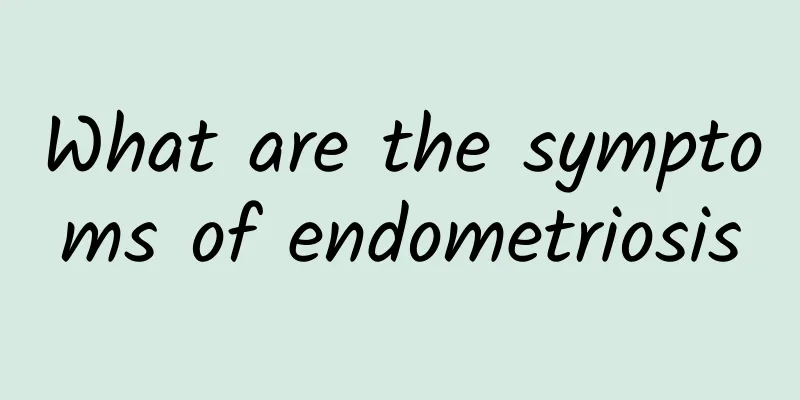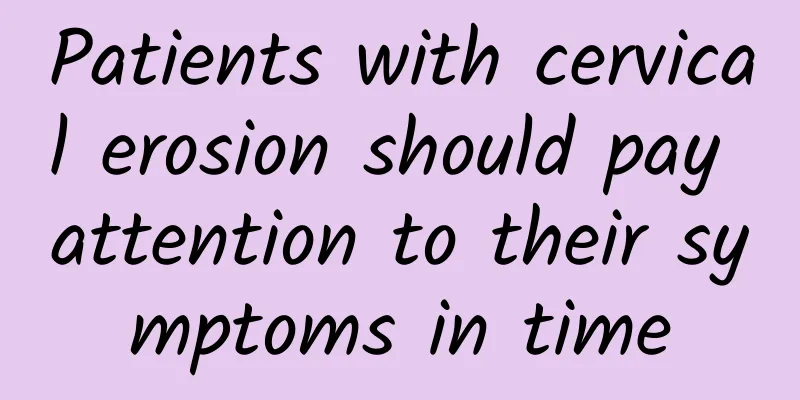What are the symptoms of endometriosis

|
Endometriosis is a common gynecological disease with various symptoms, including menstrual pain, menstrual abnormalities, sexual intercourse pain, infertility and chronic pelvic pain. If the symptoms persist, it is recommended to seek medical attention in time and take appropriate treatment measures according to the doctor's advice according to different situations. The details are as follows: 1. Menstrual pain (dysmenorrhea): Endometriosis patients often experience severe abdominal pain during menstruation, which may be more severe than ordinary dysmenorrhea. You can take painkillers such as ibuprofen or naproxen under the guidance of a doctor to relieve the pain; at the same time, hot compresses on the abdomen can also relieve dysmenorrhea symptoms. 2. Menstrual abnormalities: Patients may experience irregular menstrual cycles, prolonged menstruation, excessive menstrual flow, and other problems. Maintain a regular schedule, reduce stress, and use hormone therapy under the guidance of a doctor to regulate the menstrual cycle when necessary. 3. Pain during sexual intercourse: Pain during or after sexual intercourse is also a common symptom of endometriosis. If you experience pain during sexual intercourse, you should reduce the frequency of sexual activity and seek medical attention and professional treatment in a timely manner. 4. Infertility: Endometriosis may cause female infertility, which is why many patients seek treatment. For patients who want to have children, assisted reproductive technology, such as artificial insemination or in vitro fertilization, can be used under the guidance of a doctor. 5. Chronic pelvic pain: Even when you are not menstruating, you may continue to feel pain in the pelvic area. Chronic pelvic pain can be relieved through physical therapy, medication, or surgery. Choose the most suitable treatment according to your doctor's advice. In order to reduce the impact of endometriosis on life, patients should maintain healthy living habits, pay attention to diet conditioning, undergo regular gynecological examinations, and detect and treat the disease early. |
<<: Causes and treatments of vaginal candidiasis
Recommend
Will left ovarian cyst affect early pregnancy? What are the different degrees of impact?
Left ovarian cyst refers to a cystic mass in the ...
Traditional Chinese medicine hemostatic prescription for treating uterine fibroids
Traditional Chinese medicine believes that excess...
Life details that patients with cervical erosion must pay attention to
During regular treatment, patients with cervical ...
What should I do if I have cervical erosion of degree 2? Here are 3 things to pay attention to when you have cervical erosion
Cervical erosion is a common sexual disease in wo...
Typical symptoms of uterine fibroids
Uterine fibroids are a common disease. Only by ta...
Patients with pelvic inflammatory disease should have a fixed sexual partner
Some young women have multiple sexual partners, a...
What are the dangers of adenomyosis?
What are the dangers of adenomyosis? The presence...
Can I eat chocolate after a miscarriage? Pay attention to personal health
After having an abortion, women can eat some choc...
How to avoid uterine prolapse
How to avoid the onset of uterine prolapse? Good ...
What harm does irregular menstruation do to the body
Blood diseases, hypertension, liver diseases, end...
Can women in menopause still get pregnant? Pay attention to protecting yourself during this stage
Women in menopause can still get pregnant. When w...
Foods you can and cannot eat to lose weight - a reference for people who want to lose weight
When it comes to weight control, diet control is ...
Follow the therapist to do 6 animal brain exercises
"To live, you must move!" According to ...
Eliminate the tenderloin! 8 foods that can help you lose weight
Administrators, engineers, teachers, information ...
Will irregular menstruation prevent pregnancy?
Irregular menstruation does not necessarily lead ...









